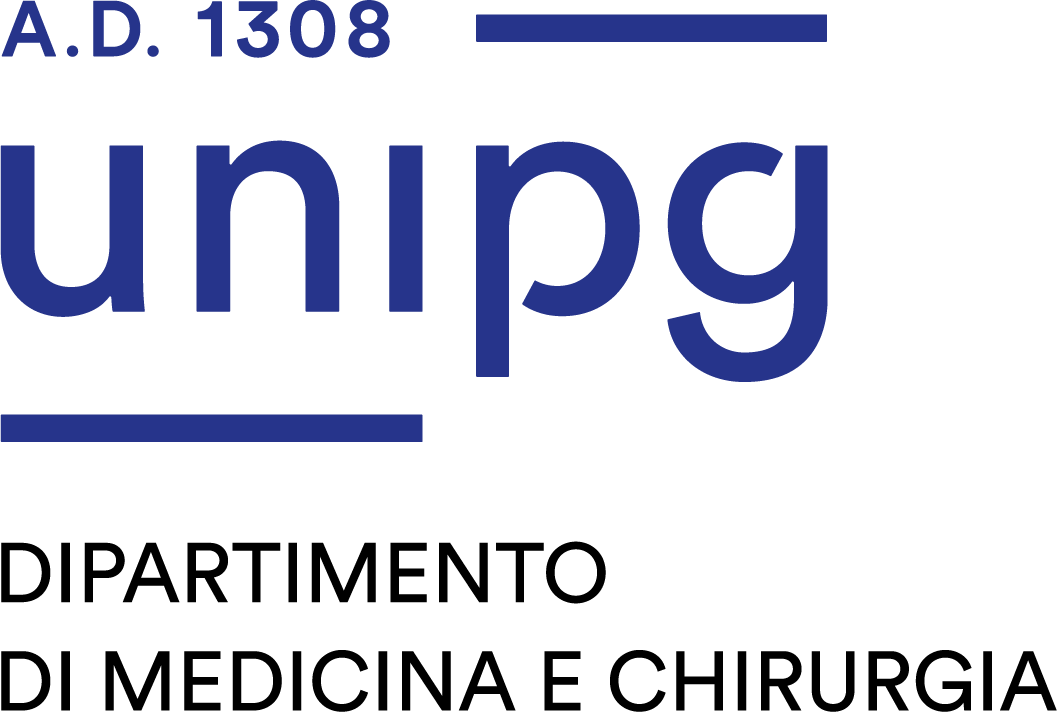- Methylglyoxal-dependent glycative stress and glyoxalases in cancer and rare diseases (cerebral cavernous malformations, cystic fibrosis). (Prof.ssa Cinzia Antognelli, Prof. Vincenzo Nicola Talesa);
- Integrative biology at the host/microbe interface with specific topics including fungal commensalism and pathogenicity, airborne infections and respiratory microbiome, intrinsic and extrinsic circuits of circadian regulation, and mucosal immunology. Development of organ-on-a-chip technology for disease modeling and drug discovery. (Prof.ssa Marina Maria Bellet, Claudio Costantini);
- Biochemical characterization of Vitamin B6-dependent enzymes involved in rare disease: from the molecular pathogenesis to the development of new therapeutic strategies. (Prof.ssa Barbara Cellini);
- Molecular characterization of the autophagy pathway in Toxoplasma gondii: identification of factors that regulate autophagosome formation to sustain chronic infection persistence in infected individuals. (Prof. Manlio Di Cristina);
- Evaluation of vaccination strategies and policies at local, national and international level; epidemiological studies on vaccine preventable diseases; health technology assessment of public health interventions. (Prof.ssa Chiara de Waure);
- Immune tolerance regulation via tryptophan metabolism in autoimmune diseases, cancer and chronic inflammation; Indoleamine 2,3-dioxygenase 2 (IDO2) expression and polymorphism in human cancer; Molecular mechanisms of cytokines in tolerance and autoimmunity; Role of metabolites and metabolite sensors in innovative immunotherapy approaches; Dendritic cell subsets in immunoregulation in tumor and autoimmune and in rare diseases; Studies on plant-derived bioactive compounds or biomaterials functionalized with therapeutic agents rebalancing bone cell turnover, promoting osteogenesis and/or counteracting bone demolition mediated by osteoclasts. (Prof.ssa Fallarino, Prof.ssa Maria Laura Belladonna, Prof.ssa Ciriana Orabona, Prof.ssa Maria Teresa Pallotta, Prof. Marco. Gargaro);
- Sertoli cell: an endocrine cellular system employed for treatment of type 1 and 2 diabetes mellitus, other autoimmune disorders, cell transplant and male infertility. (Prof. Giovanni Luca, Dr. Mario Calvitti);
- Molecular mechanisms underlying the activation of inflammatory and immune responses in different pathological conditions with regard to canonical, non-canonical and alternative pathways activation of the NLRP3-inflammasome platform in immune, degenerative and tumoral contexts. Effect of different types of molecules and of exo-vesicles in modulating NLRP3-inflammasome. (Dr.ssa Letizia Mezzasoma);
- Analysis of Proteostasis in cell cycle; p53 and HOPS in cancer; Study of tumor escapes mechanisms in response to stress/injury to DNA. Identification of novel proliferative markers in lung cancer. Study of modifications in epigenetic programs that regulate tumor proliferation. Analysis and understanding of the fine mechanism that allows modification of gene expression to approach personalize therapy. (Prof. Giuseppe Servillo);
- Biopathological characterization of the principal human solid tumors (breast cancer, lung cancer, melanoma and gastro-intestinal cancers in particular). (Prof. Angelo Sidoni);
- Investigating the biology of muscle precursor cells, muscle regeneration, muscle atrophy (including sarcopenia and cancer-induced cachexia), and muscular dystrophy with particular regards to RAGE (receptor for advanced glycation end-products) and its ligand, S100B; Investigating the use of microencapsulated Sertoli cells as a therapeutic treatment to Duchenne muscular dystrophy; Investigating the molecular alterations induced by microgravity in muscles and satellite cells; Investigating the efficacy of herbal extracts in counteracting muscle atrophy. (Prof. Guglielmo Sorci; Prof. Francesca Riuzzi);
- Genetically attenuated pre-erythrocytic and blood stage Plasmodium parasites as a new strategy for the development of vaccine against malaria disease; Studies on insect collective behaviour to bridge knowledge gaps in An. gambiae mating; Development of alternative strategies for mosquito-borne arbovirus control: the advantage of Wolbachia approach; New strategies for antimalarial drugs discovery; Inflammation and microbiota in breast cancer. (Prof.ssa Roberta Spaccapelo);
- Criminal Patent Law; Criminal Law and European Human Right Law; Public Corruption and Para-Corruption; Sport and Criminal Negligence; Workers Healt and Criminal Law. (Prof. Vico Valentini);
- Study of the mechanisms of interaction between the host immune system and fungi as opportunistic pathogens; Setting of 3D human/mouse organoid model of infection; Probiotic use in oral mucositis. (Prof.ssa Teresa Zelante);
Tematiche di Ricerca
- Dettagli
- Scritto da Andrielli Gianluca


